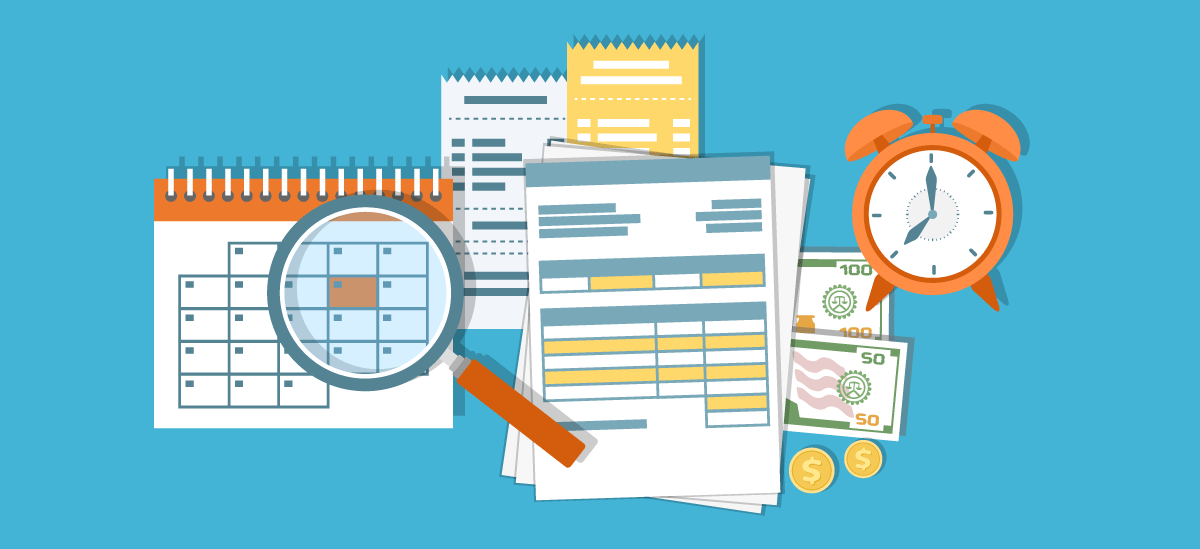
Article Summary
- A bounced check occurs when a bank can't process a check due to insufficient funds.
- Common causes of bounced checks include failing to monitor account balances, failing to account for pending transactions, and delayed deposits.
- Bouncing a check can lead to financial penalties, damaged relationships with payees, and credit and legal issues.
- Carefully monitoring account balances and activity and setting up overdraft protection and alerts may help you avoid bouncing checks.
- If you accidentally bounce a check or receive a bad one, contact the other party immediately to resolve the situation.
If you’ve ever noticed an overdraft on your bank statement, you might have felt a twinge of panic. Most don’t overdraw their accounts on purpose. However, bouncing a check can lead to serious consequences, ranging from overdraft fees to potential legal trouble.
The following guidance explains the term bounced check and explores the most common causes. We'll also provide tips to help you avoid this banking mistake and what to do if you've written or received a bounced check.
What Is a Bounced Check?
A bounced check is a check the bank cannot process, often because there’s not enough money in the checking account to cover it or there's another issue with the check or the account. When this happens, the bank refuses to provide the funds to the check recipient. Bounced checks often result in a non-sufficient funds (NSF) fee charged to both the check writer and the recipient.
The Causes and Reasons Behind Bounced Checks
Several key mistakes can lead to a bounced check. Understanding the primary causes can help you manage finances more effectively and avoid unintentionally writing a bad check.
Insufficient Funds in the Account
A common cause of a bounced check is insufficient funds. This often occurs when account holders are unaware of their current balance. Forgetting about pending transactions or automatic bill payments can lead to an unexpected funding shortfall.
Insufficient funds may also occur if an expected deposit is delayed. For example, if your paycheck arrives late or a large check takes longer than expected to clear.
Closed Account
Checks written from a closed account will bounce because the account is no longer active to support the transaction. This situation might arise if the account holder forgets about checks that were written prior to closing the account. To avoid this situation, it's critical to ensure all pending checks are accounted before closing an account.
Errors in Writing Checks
Sometimes, mistakes in writing a check can cause the bank to return it. Common examples include incorrect dates, miswritten numbers, or illegible handwriting. These types of errors may also confuse the processing systems or cause delays.
Without careful tracking, account holders may inadvertently use the funds for other purposes, leading to a bounce when the bank ultimately processes the check.
Outdated or Fraudulent Checks
Personal checks are considered "outdated" and may be rejected by the bank if they have not been cashed after 180 days (6 months), causing the account to bounce. A fraudulent check involves deception, such as forged signatures or altered amounts. When identified, fraudulent checks will bounce and may lead to legal action.
Technical Issues and Bank Errors
Although less frequent, technical glitches in the banking system or human errors at the bank can lead to bounced checks. This may include data entry mistakes, check scanning device errors, or miscommunication between banks. Once identified, banking errors are generally resolved. However, the delay can temporarily disrupt other financial transactions.
Consequences of Bouncing a Check
Bouncing a check can create negative consequences beyond immediate financial penalties. Writing bad checks can impact your overall financial health. This can also negatively affect relationships with businesses and financial institutions.
Bank Charges: NSF and Overdraft Fees
When a bank cannot process a check due to insufficient funds, it may deduct a non-sufficient funds (NSF) fee from the account. Additionally, if the bank temporarily covers the check, it may charge an overdraft fee. These fees can quickly accumulate, especially if multiple checks bounce from the same account.
Merchant Fees for Returned Checks
Merchants and other recipients often impose fees to cover the costs associated with returned checks. Bouncing a check may also result in late fees, transaction delays, or service cancellations, adding further complications and potential costs.
Damaged Relationships With Payees
Bouncing checks can damage relationships with merchants and service providers. After encountering an NSF check, businesses may lose trust and be reluctant to accept checks from you in the future. This can limit your payment options, making future transactions more difficult.
Potential Legal Issues
When large checks bounce, or there’s a pattern of behavior that suggests fraud, the check writer may face legal consequences. When you know funds are not available, writing checks may lead to misdemeanor or felony charges, depending on state laws and the amount of money involved.
Avoiding the Bounced Check Pitfall
A few simple steps can help you avoid the inconvenience and potential consequences associated with bounced checks. Keeping your finances organized and proactively managing checking accounts may drastically reduce the risk of insufficient funds.
Keep Track of Your Account Balance
Keeping a close eye on your account balance is one of the most effective ways to prevent bounced checks. Regularly check your bank statements and account balances, either online or through mobile banking apps.
It’s also important to track deposits and withdrawals closely, including pending transactions not yet reflected in your account balance. Finally, consider keeping extra funds in your checking account. This can serve as a buffer to cover unexpected expenses or delays.
Set Up Overdraft Protection and Alerts
Many banks offer overdraft protection services, which act as a safeguard against bouncing checks. Overdraft protection links your checking account to another checking account, savings account, credit card, or line of credit. If you write a check that exceeds your checking account balance, the bank does not bounce it. Instead, it uses funds from the linked account to cover the check. While this protection can be useful, it’s important to understand that overdraft fees can still quickly add up.
Automated account alerts can help you stay informed about your account status. Many banks send alerts to notify account holders of their current balance, unusual transactions, and more. Receiving alerts via text or email allows you to proactively manage situations that could lead to a bounced check.
Handling Bounced Checks: Steps to Take if It Happens to You
Even with careful planning, there’s still a chance you may inadvertently write or receive a bounced check. Knowing how to handle these situations can minimize impact in these situations and help maintain healthy financial relationships.
What to Do When You Issue a Bounced Check
If you learn you've issued a bounced check, act quickly to resolve the situation. Contact the payee as soon as possible. Inform the recipient of the mistake and discuss alternatives for payment. To maintain trust and avoid further penalties, replace the funds and cover any fees incurred by the check recipient as soon as possible.
Also, check with your bank to understand how the error occurred. If the bank has charged NSF or overdraft fees, deposit additional funds to ensure those debits don’t result in additional bounced checks.
How to Proceed if You Receive a Bounced Check
If you’re the recipient of a bad check, contact the issuer directly as soon as possible. Notify them of the problem and request another form of payment, such as cash, a money order, or a direct transfer. This can help you avoid the cost and hassle of another bounced check.
If the issuer is unresponsive or unwilling to resolve the payment, you may need to consider formal collection processes or legal action, depending on the amount and circumstances. Keep detailed records of all communications, as this may prove helpful if the situation escalates.
Final Takeaways
Bouncing checks can cause a variety of problems, ranging from costly fees to a damaged reputation and legal challenges. Fortunately, carefully managing your finances and proactively handling mistakes can help you avoid many complications associated with bounced checks.
At PNC Bank, we understand that everyone can have low-balance moments. That’s why all Virtual Wallet® products include Low Cash Mode®, a feature that allows customers to avoid NSF charges and overdraft fees. With customized low-balance alerts and extra time to fund negative-balance accounts, you’ll have the added control needed to minimize the worries of bouncing checks.







